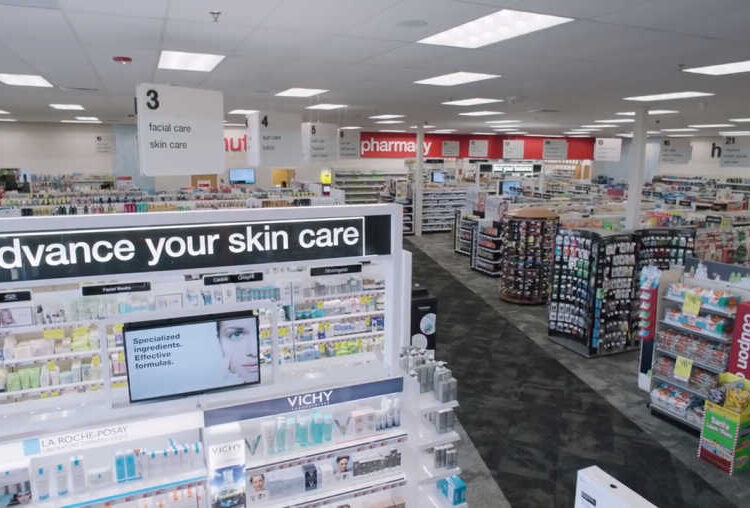America’s private health insurance system is rapidly becoming centralized. Shareholders approved drugstore giant CVS Health takeover of the insurance company Aetna Inc.
The $69 billion acquisition will combine CVS’s 9,000 pharmacies and 1,100 Minute Clinics with Aetna’s health plans. The New York Times estimates the combined CVS and Aetna will serve 94 million customers. About 22 million people take part in Aetna’s health insurance plans.
The deal could transform American healthcare by giving a few centralized companies control over the market, CNBC claims. For example, CVS and Aetna could force its policyholders to only use its clinics and pharmacies.
Many Americans will have to go along because they receive health insurance from employers. To clarify, those Americans have to accept whatever health insurance their employer provides. The employers deduct health-insurance premiums from the employee’s pay.
CVS and Aetna try to reduce healthcare costs
CVS Health’s Minute Clinics are testing telehealth video visits with physicians, Healthcare Informatics reports. The visits will cost $59 and be available 24 hours a day, seven days a week.
CVS believes Video Visits could reduce healthcare costs by eliminating expensive consultations with specialists. Specialized care is one of the most expensive aspects of American healthcare. Americans are more likely to see specialists because their healthcare plans cover all the costs.
One way Aetna could reduce claims costs is to steer policyholders to CVS Minute Clinics. Another is to reward policyholders that took advantage of video visits.
A hope is that CVS and Aetna can reduce drug and healthcare crises with high market share. High-health costs are a major concern in America. For example, Amazon, Warren Buffett’s Berkshire Hathaway, and JPMorgan Chase (America’s largest bank) teamed up to create their own lower cost healthcare service.
Healthcare spending accounts for 18% of America’s gross domestic product. Analysts expect healthcare to make up 20% of America’s GDP by 2025.
CNBC estimates 98% of CVS shareholders and 97% shareholders voted for the deal. The merger still requires approval from the United States Department of Justice. The Department must determine if the deal complies with America’s antitrust laws.
America’s increasingly centralized healthcare industry
America’s healthcare industry is becoming increasingly centralized with recent deals.
For example, the health insurer Cigna is acquiring widely-hated pharmacy benefit manager Express Scripts. To explain, benefit managers like Express Scripts handle all the paperwork associated with prescriptions.
Moreover, America’s second largest drugstore operator Walgreens, Boots’ sister company, is forming an alliance with the nation’s largest grocer, Kroger. Under the arrangement, Walgreens will sell Kroger groceries in its drugstores.
Amazon acquired the digital pharmacy PillPack. It considers expanding PillPack’s operations to service more health insurance plans.
Notably, Amazon and PillPack plan to service America’s largest health insurance plan Medicaid. Statista estimates that 73.5 million people participated in Medicaid, America’s government health insurance scheme for the poor, in 2017.
The goal of these mergers is to create large centralized healthcare providers similar to Britain’s National Health Service (NHS). The hope is that the centralization will lower costs by controlling market share, eliminating middlemen, and restricting access to healthcare.
Are Aetna and CVS preparing for single-payer?
Such mergers will intensify the debate over single-payer health insurance in the United States. America is the only major industrialized nation that lacks a single-payer healthcare system.
Many American politicians including former President Barack Obama have embraced single payer. Obama announced his support for such system and called for ‘Medicare for All’ in a speech in Illinois last September.
Several other powerful political figures, including Senator Bernie Sanders (I-Vermont) and Senator Kamala Harris (D-California), publicly support the single-payer system too.
President Donald Trump (R-New York) has publicly praised single payer systems including the NHS. However, Trump has backed away from single-payer support to please elements of his Republican Party in recent years.
Single-payer health insurance is likely in the United States because a Reuters/Ipsos poll found 70% of Americans supported it. Therefore, a likely rationale for the Aetna and CVS merger is to prepare for single-payer.
The federal government is already America’s largest health insurance provider. Around 56.8 million Americans participate in the government-subsidized Medicare plan for the elderly and disabled. Another 73.5 million take part in Medicaid. Therefore, the federal government will be Aetna and CVS’s largest customer.
The consolidation of healthcare will change America’s insurance industry. The greatest change is that health insurance companies like Aetna/CVS and Cigna are becoming healthcare providers.






